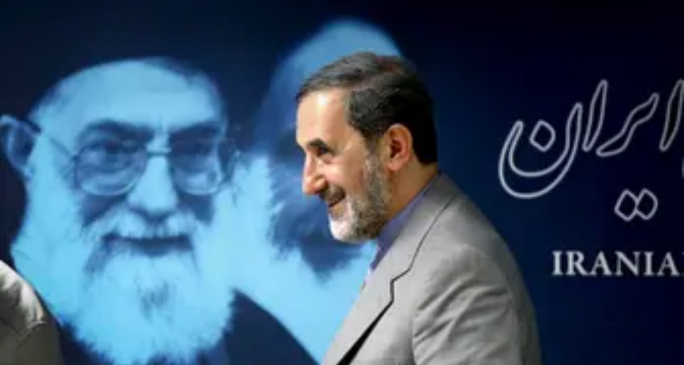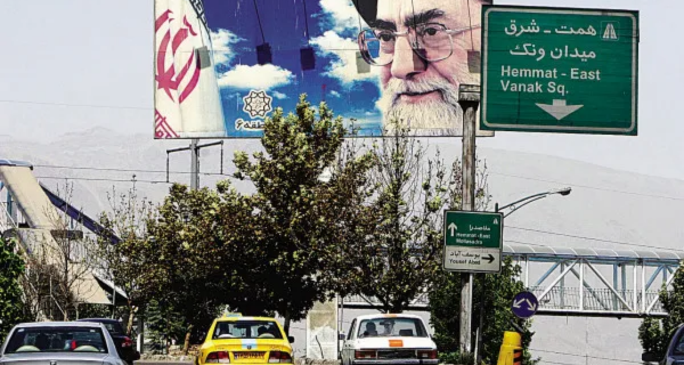In Azerbaijani, there is a saying — “quru bəy”, literally “the penniless nobleman.” It refers to a person whose ancestors were immensely wealthy, but who, through his own incompetence, is left without a penny. Instead of working hard and taking steps to improve his current condition, he sleeps until noon and endlessly talks about how rich his grandfathers once were. For a reader struggling to understand this expression, it is enough to look at Persian nationalists in Iran.
Indeed, it is painful to see the current condition of the Persians — once among the most ancient peoples of the East, whose language for centuries served as the lingua franca of the Orient, whose architecture and poetry influenced entire civilizations, and who in ancient times were, in today’s terms, a “superpower.” And yet today, instead of rising to action and becoming once again the locomotive of the region as their ancestors had been, Persian nationalists do nothing but talk themselves hoarse about their “over 2000 years of statehood history,” only to make themselves a laughingstock whenever they attempt real action. It is as if a postmodern writer had scripted a comedy for the stage, and the world watches only to laugh.
To be more precise:
Today, Iran is a country where every military drill ends in disaster, killing its own soldiers or destroying its own equipment.
Today, Iran is a country that, in the name of helping Palestinians, fired hundreds of rockets at Israel — yet achieved nothing. On the contrary, one of its rockets fell on a Palestinian, killing him. The most absurd part is that the poor man did not die from the explosion of the rocket. The rocket, overweight and malfunctioning, failed to explode at all and simply crushed him to death.
Today, Iran is a country where Israel sends Iranian generals to kingdom come before they can even rise from their beds.
It is a country so incapable that, while Israel bombarded Iran for days with its aircraft, Iran failed to bring down even a single Israeli plane. It was as though Iran’s air force had simply disappeared. By comparison, in the first six months of the Russia–Ukraine war, Ukraine managed to shoot down more than 300 Russian aircraft.

We could continue this tragicomic list, but we do not wish to tire the reader. Instead, let us point to one telling fact: Iran today is a country whose Supreme Leader’s adviser — a man who foams at the mouth as he lectures about Iran’s “glorious” past and present “strength” — Ali Akbar Velayati, resorts to criticizing Americans by using X (formerly Twitter), a platform created by the West. To be fair, he at least wrote his status in Persian rather than in English, as if that somehow demonstrates Iran’s power to the world. Yet he has never asked himself the obvious question: why is Iran unable to create such a platform on its own? But then again, he is the “proud” Persian — the “quru bəy”. He does not think, he does not act; he only speaks.
تاریخ پرافتخار ملت مقتدر و کهن #ایران نشان می دهد که این مردم هیچگاه اجازه معامله بر سر امنیت ملیشان را نخواهند داد.#آلاسکا#اوکراین#قفقاز#مردهزارچهره
— Aliakbar Velayati (@Drvelayati_ir) August 17, 2025
In reality, Velayati’s tweet reveals much more than intended. The hashtags he used show what really angered Iran’s “quru bəy”: the meeting on Ukraine held in Alaska. Even Iranian media openly admitted that the hashtag “man of many faces” was aimed at Putin. Everything is clear up until the Caucasus hashtag. It raises an important question: what does the Caucasus have to do with this?
The inclusion of the “Caucasus” hashtag suggests that either the issue of the Zangezur Corridor (the TRIPP route) was raised at the summit and Putin agreed to it, or that Persian “quru bəy” fears that he might. Too timid to mention Putin’s name directly, “quru bəy” instead directed his threats against the peoples of the region. But he should not forget that this corridor is vital not only for Azerbaijan but also for Armenia and indeed for the wider world. Sooner or later, it will be opened. To oppose it is akin to opposing the force of gravity itself.
As for his threats against us, they have been dismissed without a second thought. For we know the Persians well, we know their history well, and we know very well what they are truly capable of. The “quru bəy” should not forget that the proud Persians’ history effectively ended with the killing of the last Sassanian ruler by the Arab Caliphate. After that, the dominance of Persians survived only in literature and the arts. From the Seljuks onward, it was Azerbaijani dynasties who ruled Iran. It was thanks to the Azerbaijani Qara Qoyunlu and Aq Qoyunlu dynasties that the Mongols and Timurids were expelled from the region. It was thanks to the Azerbaijani Safavid dynasty that Iran became the region’s most powerful empire and survived intact until the 20th century. It was thanks to the prudence of the Azerbaijani Qajar dynasty that Iran avoided catastrophe and was spared destruction during the First World War.
But sadly, in the 1920s, the Persian Pahlavi dynasty — ultra-nationalists who squandered Iran’s wealth in service of the West — staged a military coup and seized power from the Qajars. Iran’s true decline begins here. It was they who invented, for the first time, the myth of the “2,500-year Persian state.” They conveniently forgot that in the last thousand years, Iran had not been ruled by Persian dynasties at all, but by Azerbaijani ones. They pretended, absurdly, that from the Arab conquest until the 1920s a Persian state had existed continuously.
Chauvinism rose to such a level that, inspired by Hitler’s Aryan ideas, they even changed the country’s name to “Iran,” as if to declare themselves a superior race. Naturally, all this culminated in Iran being occupied by the Soviets and the British. In the 1970s, a new nationalist, Khomeini, overthrew the Shah and seized power — his first act being to plunge the country into war with Iraq. Hundreds of thousands were killed, infrastructure was destroyed, and Iran emerged from the war gravely weakened, without achieving a single strategic goal. After Khomeini, an Azerbaijani Khamenei eventually came to power and stabilized Iran, for better or worse.
Finally, with the election of Masoud Pezeshkian to the presidency — the second-highest office in Iran — the country’s image has begun to improve significantly. Today, two Azerbaijanis hold Iran’s two highest posts: Khamenei as Supreme Leader and Pezeshkian as President. The world has started to speak not of war with Iran, but of peace, of Iran’s integration into the global economy.
Yet even now, Iran’s “quru bəy”, Velayati, does his utmost to ruin the country. At one moment, he complains about Azerbaijan to Pakistan, as if Pakistan were our guardian. At another, he grumbles on social media about peace in the Caucasus, consumed by envy. Perhaps he forgets that without peace, there can be no development. And without development, countries like Israel — and others — will continue to plough through Iran as they please.

